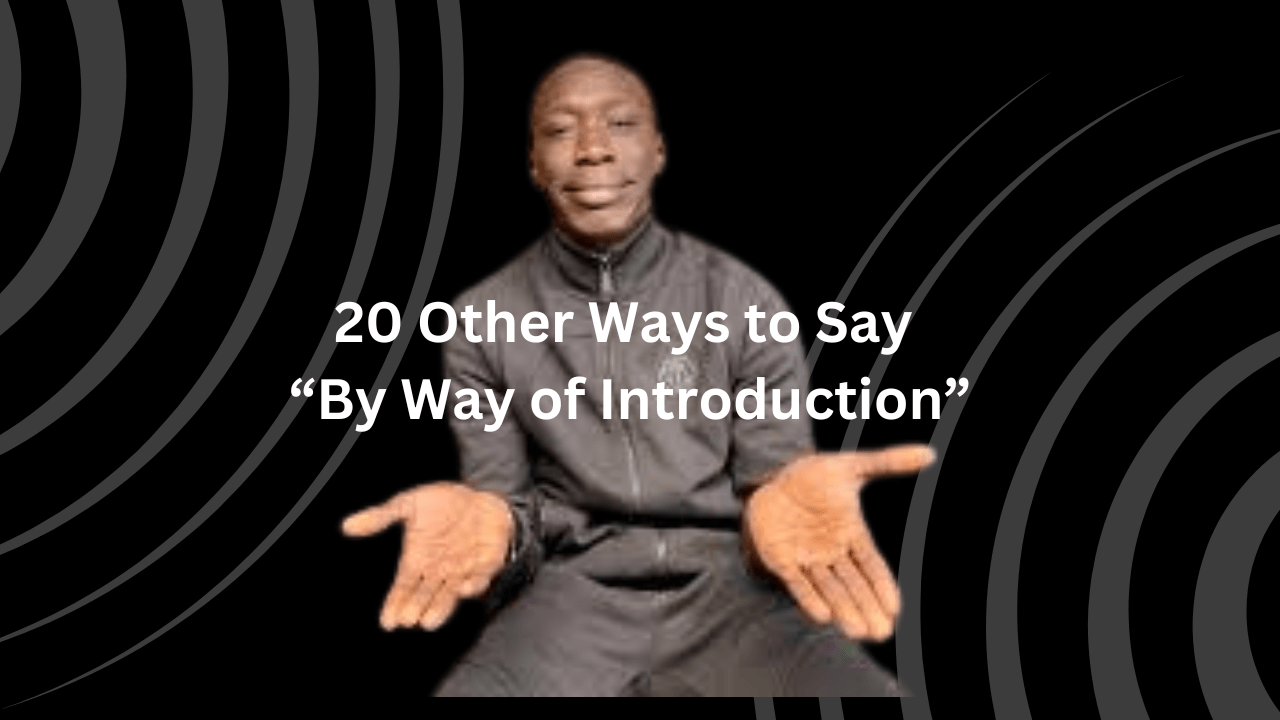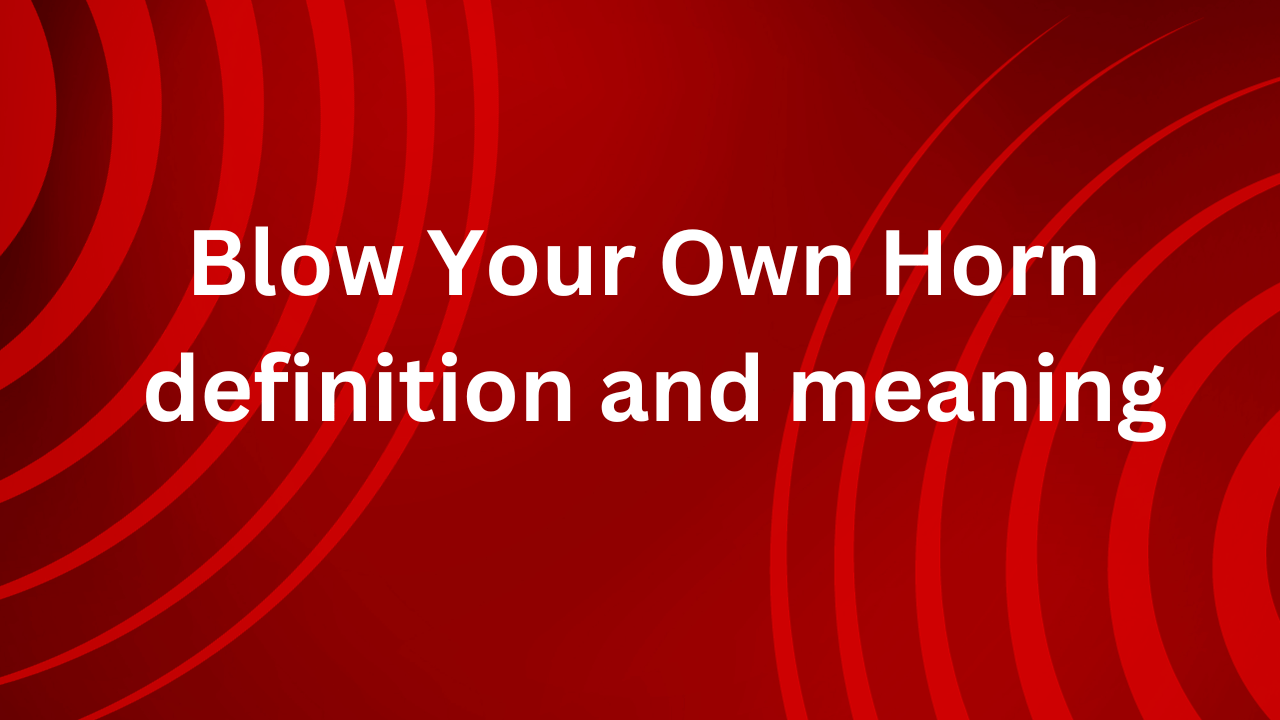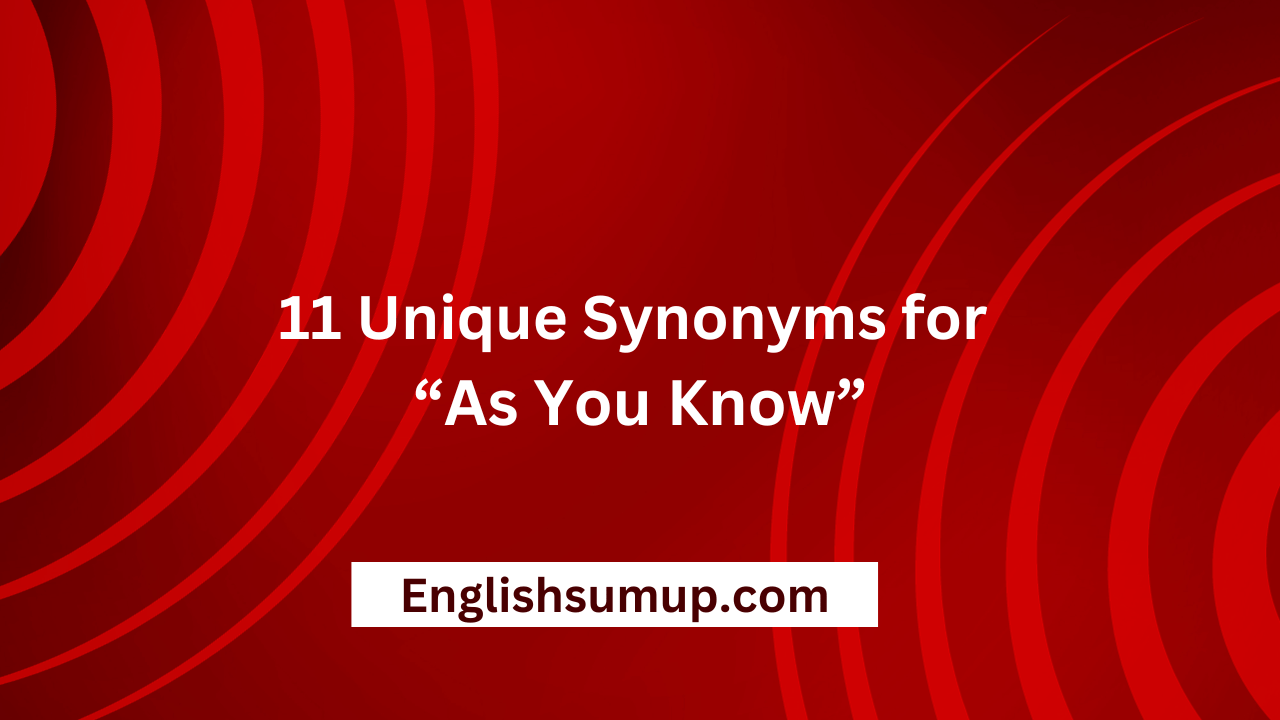In certain instances, you may find yourself seeking someone’s attention through email. However, it’s important to acknowledge that the recipient might be occupied with various commitments and may not be readily available to assist you.
While expressing understanding with the phrase “I know you are busy” is a valid choice, there are several other professionally and politely crafted alternatives that can effectively convey a similar sentiment.
This article has curated a collection of these alternatives to guide you in articulating your acknowledgment of the recipient’s busy schedule in a courteous manner.
Other Ways to Say “I Know You Are Busy”

- Could we connect when it suits you?
- I understand your schedule may be hectic.
- I acknowledge your packed agenda.
- Please let me know when you have a moment.
- I recognize you have a lot going on.
- I’m cognizant of your demanding workload.
- Should we catch up at a more convenient time for you.
- I comprehend your time is valuable.
- I’m aware of the demands on your time.
- Let’s touch base when you’re available.
- I respect your busy timetable.
Could we connect when it suits you?
This phrase delicately suggests flexibility in scheduling, showing respect for the other person’s time commitments. It implies a willingness to adjust the timing according to their convenience, fostering a collaborative and considerate tone in communication. Isn’t this best than I Know You Are Busy.
Sub: Flexible Timing for Our Discussion
Dear John,
I trust this email finds you well. Recognizing the demands on your schedule, I wanted to suggest a more flexible approach to our upcoming discussion. Could we perhaps connect at a time that suits you best? Your convenience is a priority, and I am open to adjusting the timing to ensure it aligns seamlessly with your agenda.
Looking forward to your thoughts on this.
Best regards,
Devon
I understand your schedule may be hectic.
Acknowledging the busyness of the recipient’s schedule communicates empathy. This phrase recognizes the challenges they might be facing and conveys a sense of understanding, fostering a supportive atmosphere in the conversation. Isn’t this best than I Know You Are Busy.
Sub: Acknowledgment of Your Busy Schedule
Dear John,
I hope this message finds you amidst a productive day. Understanding that your schedule may be hectic, I wanted to express my appreciation for your commitment. Your time is valuable, and I want to assure you that I am mindful of the demands on your agenda. If there’s a more suitable time for our discussion, please feel free to let me know.
Thank you for your time and consideration.
Warm regards,
Devon
I acknowledge your packed agenda.
This expression directly recognizes the recipient’s busy agenda, demonstrating attentiveness to their commitments. It conveys a level of understanding regarding the demands on their time and emphasizes the speaker’s awareness of their workload. Isn’t this best than I Know You Are Busy.
Sub: Recognition of Your Packed Agenda
Dear John,
I hope this email reaches you well. I wanted to take a moment to acknowledge the packed agenda you manage daily. Your dedication does not go unnoticed, and I truly appreciate your commitment. If there’s a specific time that aligns better with your packed schedule for our upcoming meeting, I am more than willing to adjust.
Looking forward to your guidance on this matter.
Sincerely,
Devon
Please let me know when you have a moment.
This phrase politely requests the recipient to inform the sender when they have a free moment, providing them with control over their schedule.
It reflects consideration for their time constraints while expressing the desire for future communication. Isn’t this best than I Know You Are Busy.
Sub: Your Convenience for Our Discussion
Dear John,
I trust this email finds you in good spirits. In consideration of your busy schedule, I wanted to extend flexibility for our upcoming discussion. Please let me know when you have a moment, and we can coordinate a time that suits you best. Your convenience is of utmost importance to me.
Appreciate your time and cooperation.
Best regards,
Devon
I recognize you have a lot going on.
By acknowledging the various responsibilities or activities the recipient is managing, this phrase communicates a deep understanding of their busy life.
It conveys empathy and reinforces the speaker’s awareness of the recipient’s multifaceted commitments. Isn’t this best than I Know You Are Busy.
Sub: Recognition of Your Multifaceted Commitments
Dear John,
I hope this email finds you well amidst your many responsibilities. I wanted to take a moment to recognize that you have a lot going on. Your ability to manage various commitments is commendable, and I want to ensure our interactions align with your schedule. If there’s a more suitable time for our conversation, please feel free to suggest.
Appreciating your time and dedication.
Warm regards,
Devon
I’m cognizant of your demanding workload.
This expression demonstrates a heightened awareness of the recipient’s workload, emphasizing the demanding nature of their tasks.
It reflects an understanding of the challenges they may be facing and conveys a sense of respect for their professional or personal responsibilities. Isn’t this best than I Know You Are Busy.
Sub: Awareness of Your Workload
Dear John,
I hope this message finds you well. I’m cognizant of your demanding workload. When you have a moment, could we coordinate a discussion on [specific topic]? Your expertise is valued, and I want to ensure it aligns with your schedule.
Appreciate your time.
Best regards,
Devon
Should we catch up at a more convenient time for you?
Suggesting an alternative and more convenient time for a discussion, this phrase demonstrates flexibility and consideration.
It allows the recipient to choose a timeframe that aligns with their schedule, promoting a collaborative and accommodating approach. Isn’t this best than I Know You Are Busy.
Sub: Planning for a Convenient Time
Dear John,
I trust this message finds you in good spirits. Should we catch up at a more convenient time for you to discuss [specific topic]? Your availability is important, and I want to ensure our conversation aligns with your schedule.
Looking forward to your response.
Sincerely,
Devon
I comprehend your time is valuable.
This phrase conveys an understanding of the intrinsic value of the recipient’s time. It recognizes the importance of their time commitments and expresses a respectful acknowledgment of the significance placed on their schedule. Isn’t this best than I Know You Are Busy.
Sub: Respecting Your Valuable Time
Dear John,
I hope this email reaches you well. I comprehend your time is valuable. When you have a moment, could we connect to discuss [specific topic]? Your insights are essential, and I want to make the most of our conversation.
Thank you for your time and consideration.
Warm regards,
Devon
I’m aware of the demands on your time.
By acknowledging the demands on the recipient’s time, this phrase communicates an understanding of the challenges they face in managing their schedule.
It emphasizes the speaker’s awareness of the time-related pressures the recipient may be under. Isn’t this best than I Know You Are Busy.
Sub: Consideration for Your Time Demands
Dear John,
I trust this message finds you well. I’m aware of the demands on your time. Please let me know when it’s convenient for you to discuss [specific topic]. Your expertise is crucial, and I want to ensure it fits into your schedule.
Looking forward to our conversation.
Best regards,
Devon
Let’s touch base when you’re available.
This expression suggests a future connection point when the recipient is available, offering a collaborative and accommodating approach.
It indicates a willingness to align with the recipient’s schedule, fostering a cooperative tone in communication. Isn’t this best than I Know You Are Busy.
Sub: Planning for a Discussion
Dear John,
I hope you’re having a great day. Let’s touch base when you’re available to discuss [specific topic]. Your insights are valuable, and I want to make sure the timing suits you. Please let me know when it works for you.
Appreciate your time.
Sincerely,
Devon
I respect your busy timetable.
Communicating respect for the recipient’s busy timetable, this phrase emphasizes the speaker’s regard for the demands on their time.
It conveys a sense of deference and understanding, recognizing the challenges associated with managing a hectic schedule. Isn’t this best than I Know You Are Busy.
Sub: Respect for Your Schedule
Dear John,
I trust you’re well. I respect your busy timetable and want to find a suitable time for us to connect. Could you please let me know your availability to discuss [specific topic]?
Thank you for your time and consideration.
Warm regards,
Devon
Read this post also: 11 formal Ways to Say “Gifts Are Optional” on an Invitation
Conclusion:
In conclusion, adopting alternative phrases to express awareness of someone’s busy schedule is not only considerate but also enhances the overall tone of communication.
The suggested email templates provide a range of options to convey understanding while ensuring professionalism and respect.
Moreover, incorporating diverse expressions such as “I Know You Are Busy” adds a layer of versatility to your communication style. By diversifying your language, you can create a more engaging and tailored interaction that resonates positively with your recipients.
Remember, effective communication is a key element in fostering strong professional relationships. Choosing the right words to acknowledge someone’s busy schedule can go a long way in building understanding and collaboration.
Whether you acknowledge their hectic agenda, recognize their time demands, or propose catching up at a more convenient time, these alternatives aim to make your communications more impactful and thoughtful.










